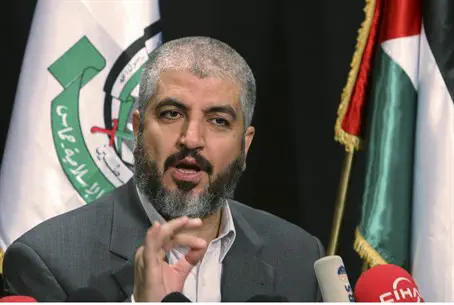
Saudi Arabia, the United Arab Emirates, Egypt and Bahrain have cut
diplomatic ties with Qatar, accusing it of supporting terror, in the Gulf Arab
region’s most serious diplomatic crisis in years. See the RT report below.
https://www.youtube.com/watch?v=aiXxsIhRnTc&t=189s
https://www.youtube.com/watch?v=aiXxsIhRnTc&t=189s
The countries said
they planned to break off all land, air and sea traffic with Qatar, and eject
its diplomats from their territories. Qatar was also expelled from a Saudi-led
coalition fighting in Yemen.
Yemen’s
internationally backed government, which no longer holds its capital and large
portions of the country, also cut relations with Qatar,
as did the government based in eastern Libya.
The coordinated move dramatically escalates a dispute
over Qatar’s support of the Muslim Brotherhood, the world’s oldest Islamist
movement, and adds accusations that Doha even backs the agenda of regional
arch-rival Iran.
Saudi Arabia said it took the decision to cut diplomatic
ties due to Qatar’s “embrace of various terrorist and sectarian groups aimed at
destabilising the region”, including the Muslim Brotherhood, al-Qaida, Islamic
State and groups supported by Iran in the kingdom’s restive eastern province of
Qatif. Egypt’s foreign ministry accused Qatar of taking an “antagonist
approach” toward Egypt and said “all attempts to stop it
from supporting terrorist groups failed”.
The tiny island
nation of Bahrain blamed Qatar’s “media
incitement, support for armed terrorist activities and funding linked to
Iranian groups to carry out sabotage and spreading chaos in Bahrain” for its
decision.
Qatar’s foreign
affairs ministry said the measures were unjustified and based on false claims
and assumptions. “The State of Qatar has been subjected to a campaign of lies
that have reached the point of complete fabrication,” a statement said. “It
reveals a hidden plan to undermine the State of Qatar.”
The escalation of a
long-simmering row had an immediate effect on air travel in the region: Qatar
Airways, one of the region’s major long-haul carriers, said it was suspending
all flights to Saudi Arabia; Etihad, the Abu Dhabi-based carrier, said it would
suspend flights to Qatar “until further notice”; Emirates, the Dubai-based
carrier, announced it would suspend Qatar flights starting on Tuesday; and
Dubai-based budget carrier flydubai said it would suspend flights to and from
Doha from Tuesday.
In late May Qatar
alleged that hackers took over the site of its state-run news agency and
published what it called fake comments from its ruling emir about Iran and
Israel. Qatar’s Gulf Arab neighbors responded with anger, blocking Qatari-based
media, including the Doha-based satellite news network Al-Jazeera.
A senior Iranian
official said the decision to sever ties with Qatar would not help end the
crisis in the Middle East. Hamid Aboutalebi, deputy chief of staff of Iran’s
President Hassan Rouhani, tweeted: “The era of cutting diplomatic ties and
closing borders is over … it is not a way to resolve crisis. These countries
have no other option but to start regional dialogue.”
Qatar is home to the sprawling al-Udeid airbase, which
houses the US military’s central command and 10,000 American troops. It was not
clear if the decision would affect US military operations. Central command
officials did not immediately respond to a request for comment.
Qatar has long faced
criticism from its Arab neighbors over its support of Islamists. The chief
worry among them is the
Muslim Brotherhood, a Sunni Islamist political group outlawed by both Saudi
Arabia and the UAE as it challenges the nations’ hereditary rule.
Gulf countries led by Saudi Arabia fell out with Qatar
over its backing of then-Egyptian president Mohamed Morsi, a Brotherhood
member. In March 2014, Saudi Arabia, the United Arab Emirates and Bahrain
recalled their ambassadors from Qatar over the rift.

Eight months later,
they returned their ambassadors as Qatar forced some Brotherhood members to
leave the country and quieted others. However, the 2014 crisis did not see a
land and sea blockade as threatened now.
In the time since, Qatar repeatedly and strongly
denied it funds extremist groups. However, it remains a key financial patron of
the Hamas-controlled Gaza Strip and has been the home of exiled Hamas official
Khaled Mashaal, pictured above, since 2012.
Western officials also have accused Qatar of allowing or
even encouraging funding of Sunni extremists like al-Qaida’s branch in Syria,
once known as the Nusra Front.
The row comes only
two weeks after Donald Trump visited the Middle East to
seal major defence contracts with Saudi Arabia worth $110bn, set up an
anti-extremist institute in Riyadh and urge the Gulf states to build an
alliance against Iran.
Although it is
unlikely Saudi Arabia would have instigated this action against Qatar without
first informing the US, it is possible that Trump did not give the green light
to such drastic steps.
The Saudis are in
part countering the allegation of funding extremism, frequently made in
Washington and in the past by Trump himself, by pointing the finger at Qatar
for funding terrorism.
Speaking in
Australia, the US secretary of state, Rex Tillerson, played down the
seriousness of the diplomatic dispute, and said it would not affect
counter-terrorism efforts.
“I think what we’re
witnessing is a growing list of irritants in the region that have been there
for some time, and they’ve bubbled up so that countries have taken action in
order to have those differences addressed,” he said.
Tillerson said
regional efforts to counter the threat of terrorism would be undiminished.
“I do not expect that
this will have any significant impact, if any impact at all, on the unified –
the united – fight against terrorism in the region or globally. All of those
parties you mentioned have been quite unified in the fight against terrorism
and the fight against Daesh, Isis, and have expressed that most recently in the
summit in Riyadh.”

No comments:
Post a Comment